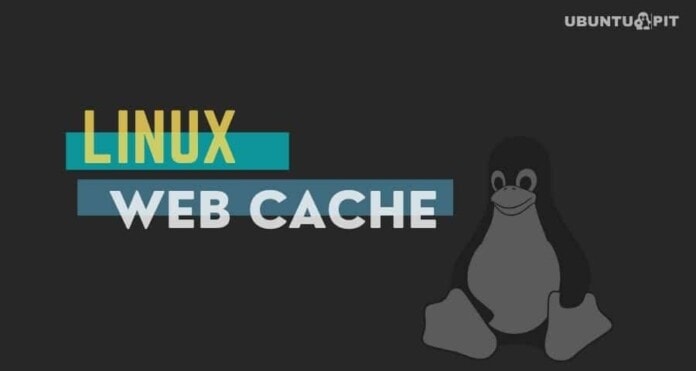The term Linux web caches refer to some caching software that runs on Linux. I am pretty sure that you are familiar with the word “cache”. Cache means temporary storage. It can be a software or a hardware system. In most cases, the cache is optimizing web content so that it loads faster on browsers by storing some static content on the device. There are some other uses of caches in modern computers. But I am not going to dive deeper into that. Almost all browsers can store HTTP caches. However, the ability depends on the ISP, CDN, or the server. There are many server-side tools on Linux that are used to enable caches into the served website to loads faster.
Best Linux Web Caches
You know that a large portion of websites on the internet runs on Linux servers. This is why many free and open-source web caches are available for Linux distros. Most of the tools are web servers with the ability to cache content. However, the webserver itself is a different tool. So, don’t be confused. Yet, I have made a list of the 10 best Linux web caches that work great for optimizing HTTP content.
1. Varnish Cache
Varnish Cache is a powerful web cache tool on Linux. This is not a full-fledged server suite. However, you have to install it on top of the Linux server to optimize the server’s delivery speed. This is a completely free and open-source software project that is capable of reducing the loading time drastically.
The main feature of varnish is that it is a very cost-efficient solution. Besides, the server-side software caches work better in most cases. It takes up just a little space into the HDD or SSD drive. You can even use some scripts written in C to extend the functionalities of Varnish.
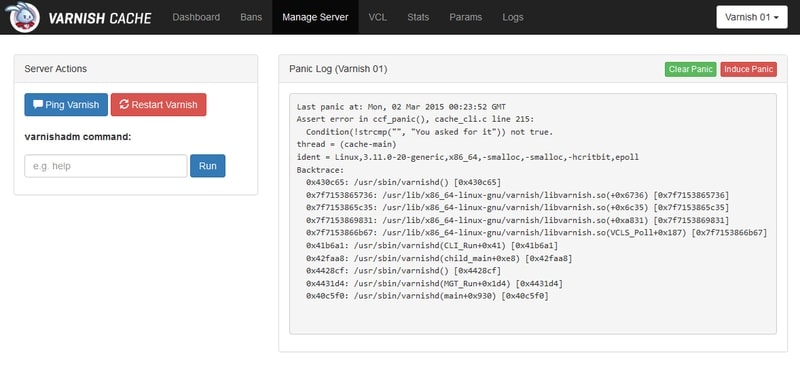
Key Features of Varnish Cache
- The admin can configure it in front of any web server.
- The design is very modern and intuitive, with a lot of bonus features.
- You can install and manage multiple instances of Varnish in a single system.
- It can boost the speed of the server, even up to a thousand times.
- This tool shows performance metrics based on different criteria.
2. Nginx
Nginx is a full-fledged web server for Linux. This is a free and open-source product with a large user-base. A significant number of websites are hosted on the Nginx server. It can enable caches without any other plugin or addon. This is why I have listed it as a caching tool.
Versatility is a great feature of Nginx. You can use it as a secondary server in front of the main server also. This technique is used for handling multiple HTTP connections parallelly sending requests to the server. This is considered one of the best Linux web caches that are free to use.
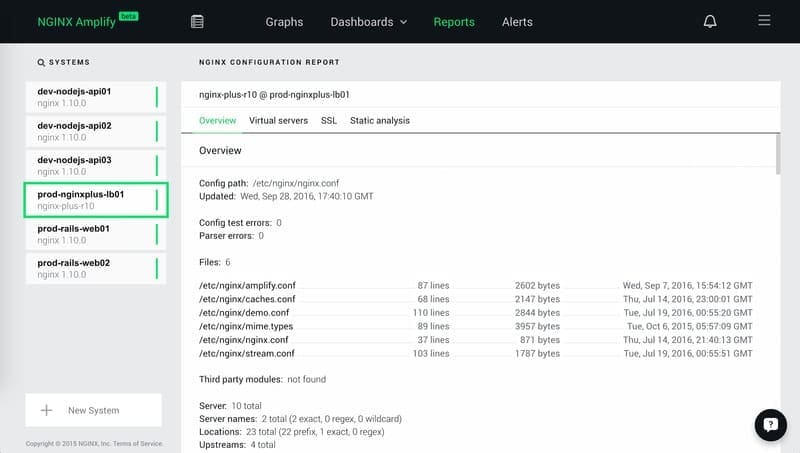
Key Features of Nginx
- It supports advanced web caching features with load balance.
- This tool can store caches even from the remote servers.
- Nginx needs fewer memory and resources while handling huge traffic.
- You can control access based on different parameters.
- This server software has embedded Perl for scripting different functions.
3. Traffic Server
This is a very popular caching proxy server on Linux. Currently, it is open-source software and can be used without any cost. However, Yahoo! maintained the source for a long time before it went open-source under Apache license.
Apart from caching data, this software serves many other purposes. You can even extend the functionalities by using third-party plugins. Traffic Server saves bandwidth greatly, thus helping the backbone providers and ISPs for a long time.
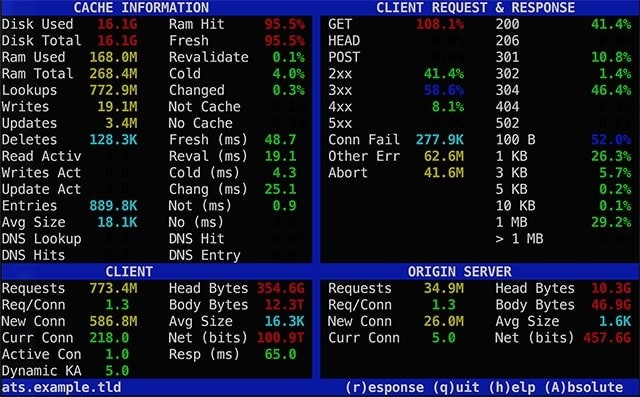
Key Features of Traffic Server
- Traffic Server serves requested contents from the cache storage to save the loading time.
- You can set up priorities for the available cache servers to automatically switch to the nearby up and running server.
- The dashboard will provide you detailed traffic statistics along with traffic logs.
- The admins can code their plugins using the open-source API for better accessibility.
- There are a few security and privacy modules to get granular control over the server.
4. Squid
Squid is a multi-functional server system with caching support. It consists of multiple modules like web server, DNS server, and other caching components. All these things together make Squid a great full-fledged system that is capable of serving content effectively.
This tool supports various web protocols like FTP, HTTP, etc. The Squid daemon runs nicely, even using a little resource from the computer. Apart from caching contents for the browser requests, it can cache the DNS database and other things. You can even set different rules for different groups of users.

Key Features of Squid
- It can cache important parts of the content in the RAM for quick access.
- The caching of Domain Name Server entries is a great feature that is worth mentioning.
- You can set up hierarchies based on priorities and filter the user group.
- This tool supports basic server features like SSL, IPV6, and reverse proxy.
- Squid can log a large number of traffic data and provides a lot of security measurements.
5. Nuster
Nuster is one of the best Linux web caches that is very easy to deploy. This tool is very powerful, with a lot of features. I am pretty sure that you are familiar with the proxy server HAProxy. This is a very reliable load balancer for the servers that have to manage a lot of traffic. You will be surprised to know that this tool is based on the foundation of HAProxy.
Thus you are getting all the basic features from HAProxy software. The ACL functionality is very popular with HAProxy. You are getting this on Nuster to get granular control over the stored cache. Nuster is almost similar to Nginx and Varnish in functionality and will give you consistent reliability.
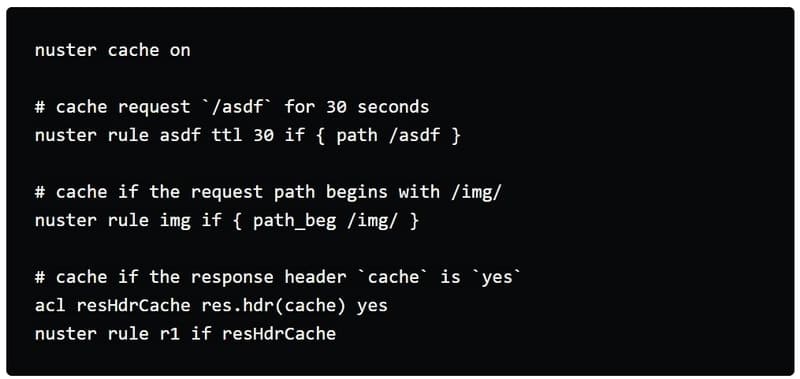
Key Features of Nuster
- It is two to three times faster than popular systems like Nginx and Varnish based on real-life testing.
- This tool supports all the cache functionalities of HAProxy.
- There is no limitation of data type in this software.
- It supports several languages for scripting.
- You can use it as a RESTful NoSQL content caching server.
6. Apache Server
Everyone knows the Apache Project. This is one of the most popular Linux server frameworks out there. This is a full-fledged server with a lot of flexibility. However, I liked the caching functionality of this server most. It will let you optimize the loading speed by caching without any extra tools.
Another interesting thing about the Apache Server is its modularity. You can add up a variety of features by these modules. Hence this software is scalable and can be implemented in large projects without any constraints.
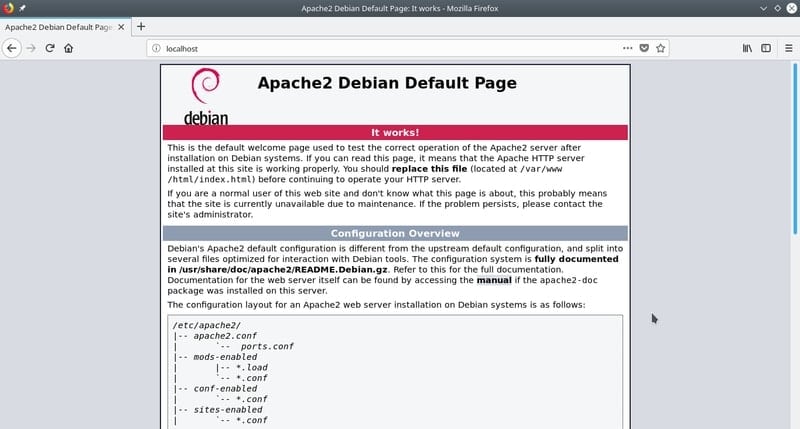
Key Features of Apache Server
- This tool supports caching with the reverse proxy for load balancing.
- It features a lot of caching functionalities, including RFC2616, Shared Object Caching, Specialized File caching.
- Apache Server has built-in support for Perl, PHP, and some other languages for scripting.
- It has advanced server features like user logging, geolocation, session tracking, reporting, etc.
- This tool runs on community contribution, and you can get instant help from them.
7. Redis
Redis stands for the Remote Dictionary Server. This is software for caching web content temporarily to accelerate the experience. However, this tool works in a slightly different way. Redis is mainly an in-memory data structure that supports several datasets like strings, arrays, hashes, etc.
Although it was not intended for use as a stand-alone cache server, you can use this for caching purposes. This tool significantly optimizes web content by using different features like database caching, full-page caching, etc. There are various security modules built-in with this tool.
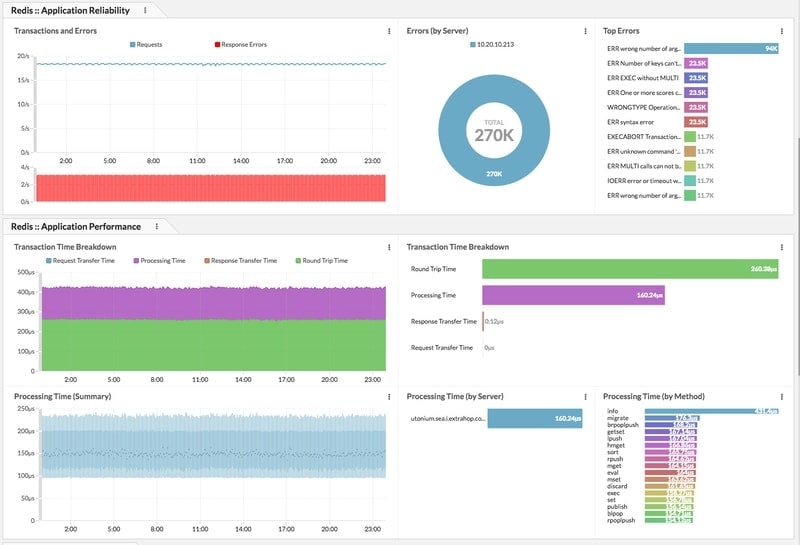
Key Features of Redis
- It has great integration with tools like Redis Cluster, Redis Sentinel, etc.
- Redis supports client-server encryption and Protected Mode feature for restrict access.
- This tool runs on all the major Unix-like platforms, including BSD and macOS.
- It works great with modern web applications like online games, social networking sites, etc.
- The source code is open, and you can modify that for large scale applications in your organization.
8. Memcached
Memcached is a free and open-source caching engine for Linux. It runs on community contributions. However, large companies like Netflix are continuously supporting this project for a long time. Hence, it is a go-to cache solution for many providers that sells web services to the clients.
It is used mainly for boosting up the loading speed of modern web applications. This thing works like a short-term memory system for the Linux web caches. You can add up multiple servers for increasing the memory limit. However, the clustered servers are not connected, unlike Redis.
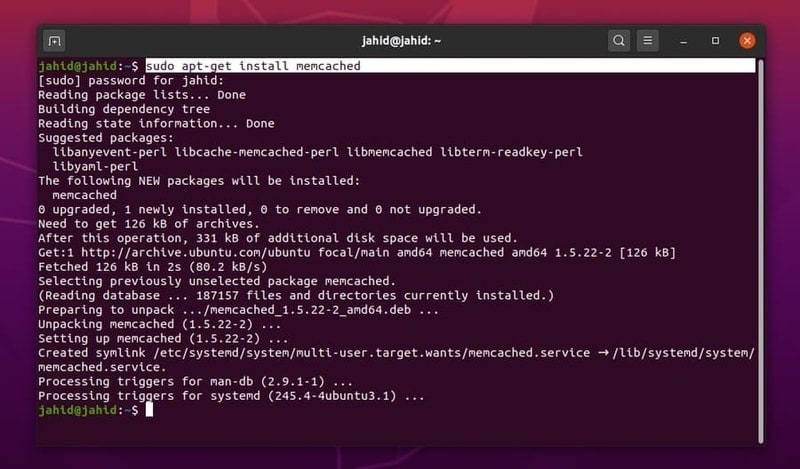
Key Features of Memcached
- It decreases the pressure on physical drive-by caching contents using the LRU technique.
- Memcached has built-in security measures like user authentication and encrypted connection.
- This tool supports almost all the common programming languages to interact with it.
- Being a cross-platform tool, it supports any devices with advanced scalability.
- It maintains an official documentation wiki for providing support to beginners.
9. Couchbase Server
Couchbase Server is yet another great platform for web caching. The original Couchbase Server is a commercial product. However, there is a community edition of this tool that is completely free and open-source.
As always, the community edition has some restrictions regarding features. But for most users, it will be adequate. Although you are not getting enterprise-level customer support from them, the open-source community is always here to help you deploy and other stuff.
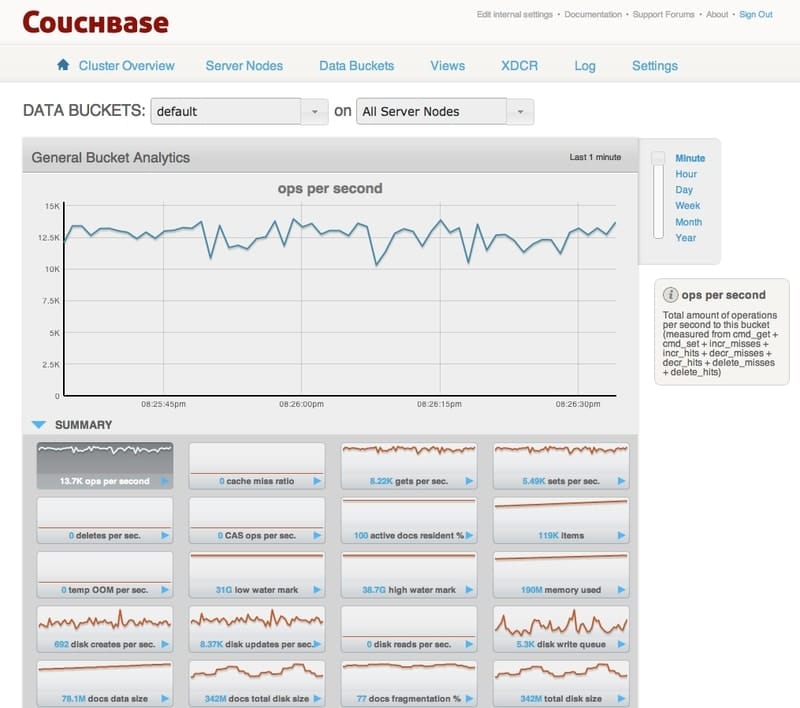
Key Features of Couchbase Server
- This tool has support for managed cache functionality for optimizing speed.
- It is highly scalable that can manage multiple nodes parallelly with a centralized system.
- Adaptive indexing is a great feature that can index values efficiently for easier queries.
- The web-based user interface has built-in command-line tools that are quite intuitive.
- The enterprise edition has a free trial option for you to check out.
10. Hazelcast IMDG
A large number of companies, including banks, use this software as a middleware for distributed computing. This tool is originally an IMDG or In-Memory Data Grid that can store and compute data inside RAM. Thus it works as a great caching tool for Linux.
However, there are some other uses of these types of IMDG tools. Modern dynamic web apps need a lot of processing power. Hazelcast IMDG can boost up the overall user experience and speed significantly by storing a temporary cache.
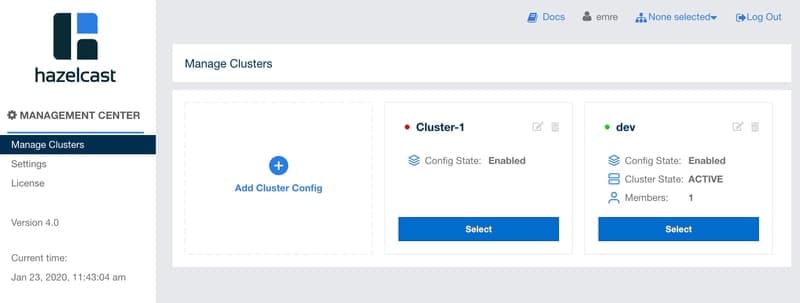
Key Features of Hazelcast IMDG
- It can automatically replicate stored cache to other nodes of the cluster.
- This tool runs on any platform that supports Java without any dependencies.
- You can store and get back data by querying with your preferred language.
- Hazelcast supports a lot of cache types, including Write-through, Write-behind, etc.
- It has great community support forums on Github, Stack Overflow, and Slack.
To Conclude
Well, all of the above tools are great as Linux web caches. They run without any problem on Linux. Even some cross-platform tools will run on any platform that leads to great flexibility. However, it’s not easy to declare the best one as a verdict. Different people have different choices and use cases, you know!
This is why I will recommend you to go through the feature list of all the tools and try out one tool in real life. This is just a trial and error process. I know some other tools also work as web caches. If you think I missed one that is worth mentioning, please comment below and let us know.
